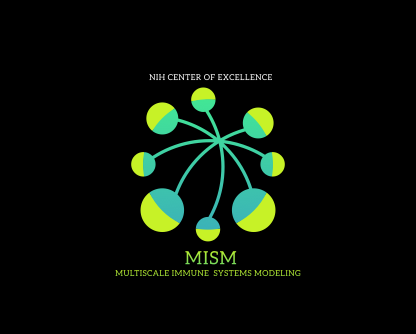
Duke University School of Medicine researchers will launch a new national Center of Excellence for Multiscale Immune Systems Modeling (MISM), funded by a U54 grant from the National Institutes of Health.
The center, led by Cliburn Chan, PhD, professor of biostatistics and bioinformatics, and R. Keith Reeves, PhD, professor in surgery, will bring together experts from multiple scientific areas across 14 academic departments at Duke to improve understanding of infectious and immune-related diseases.

The team will develop advanced computer models to help understand how these diseases develop and spread, discover new ways to treat them, and make better public health decisions that consider differences between individuals and communities.
Through three major research projects, the investigators will work together to create new models to connect what’s happening at the smallest biological levels (molecular, cellular) to what’s happening in tissues, organs, the whole body, or across populations.
In addition, the center will serve as a national hub for modeling of infectious and immune-related diseases by developing collaborative research projects, computational infrastructure, and training programs that serve the broader research community. These developments will be carried out by administrative, community development and education, and model and data sharing cores.
Through all of this, the effort aims to build the tools, systems, and communities needed to accelerate research in this important area.
“Serving as both a research hub and a national coordinating body, the center will integrate multiple scientific disciplines to advance multiscale modeling in infectious and immune-mediated disease,” Chan said. “Through our research and collaboration with the broader modeling community, we expect to create new computational frameworks that will help us understand immune-mediated disease across multiple biological scales.”
Reeves added, “This new center will not only generate national resources for research into major infectious and immune diseases but will also create infrastructure to rapidly pivot to new emerging diseases of concern when they arise. Even more importantly, education and training of young investigators is at the forefront of the MISM mission to support the next generation of researchers in this rapidly growing space.”